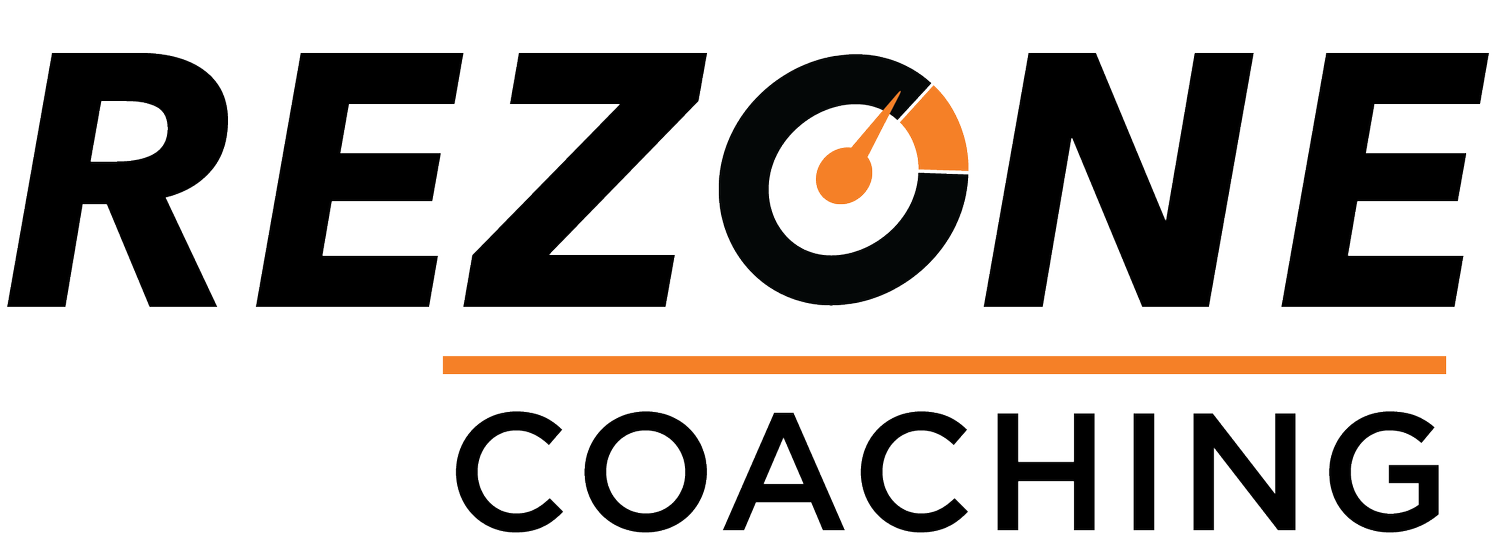
Brian’s Blog
For more resources, check out the ReZone Learning Library.
Asking Good Questions To Motivate Teams
This article offers invaluable strategies for leaders looking to uncover what drives their teams and how to effectively harness that motivation.
In my contribution titled "'What truly matters to you, and why?'" I emphasize the importance of understanding the unique motivations of each team member. As leaders, we can only motivate others when we truly understand their goals, values, and driving forces. Armed with these insights, leaders can tailor strategies that align organizational missions and goals with each team member's individual values and interests, creating a win-win situation for everyone involved.
Building High-Performing Teams By Creating Psychological Safety
This article offers invaluable strategies for leaders looking to cultivate an environment of psychological safety within their teams, ultimately leading to higher performance.
In my contribution titled "Encourage Challenging Of The Status Quo," I highlight the importance of challenging the status quo as a means to foster psychological safety. It's essential for leaders to encourage team members to challenge conventional thinking, as conformity of thought can stifle innovation and growth. By valuing and implementing diverse ideas, leaders not only enhance psychological safety but also demonstrate the importance of challenging the status quo for team productivity and success.
Cultivating Open-mindedness in Teams
This article explores essential strategies for cultivating open-mindedness within teams, offering actionable advice for leaders and professionals alike.
In my contribution, titled "Share Helpful Real-World Examples," I discuss the importance of using real-world success stories to challenge fixed-mindset mentalities among team members. As leaders, we're encouraged to adopt a coach-like approach, asking probing questions to uncover underlying attitudes. When these inquiries reveal a fixed mindset, it's crucial to supplement them with concrete examples of success. By illustrating what's possible through real-world examples, we not only provide an alternative perspective but also teach team members to be open to new possibilities.
20 Important Things Corporate Board Members Want CEOs To Do
In my contribution, titled "Be Clear, Concise, Vocal, Flexible And Open-Minded," I emphasize the importance of communication skills for executives when interacting with board members. CEOS must be clear and concise, respecting the time constraints of board members. Additionally, being vocal with honest, forward-thinking ideas is key. Equally important is the ability to remain flexible and open-minded, especially when receiving feedback from the board. Though sometimes seeming harsh, this feedback is usually aimed at fostering efficiency and should not be taken personally. It often comes from busy, fast-thinking board members focused on achieving the best outcomes.
20 Common Obstacles Standing In The Way Of Team Transformation
The obstacle I shared titled "Uncommitted Leadership" emphasizes that the dedication of the primary leader is absolutely essential, particularly when juggling multiple priorities. Without this unwavering commitment from the top, expecting the entire team to follow suit is not just unrealistic, but also naive. It's the leader's responsibility to set the right tone, which significantly reduces resistance and empowers the team to navigate unforeseen challenges and realize their utmost potential.
The article is a treasure trove of knowledge, offering insights into 20 common hurdles that teams face during transformation processes. My contribution, along with those from 19 other experts, sheds light on the multifaceted nature of team dynamics and the varying factors that can either hinder or foster successful transformation.
Four Blind Spots Of Busy Executives That Damage Organizations
These blind spots have the potential to harm not only their personal effectiveness but also the overall success of their organizations. Drawing from my extensive experience in executive coaching and leadership development, I provide practical advice on how to identify and address these blind spots.
If you're a leader striving for excellence and eager to avoid common pitfalls, this article offers valuable insights to enhance your leadership effectiveness and contribute positively to your organization's growth.
The Far Reaching Impact of Leadership Behaviors
Executive Leaders must understand and embrace how the ‘Ripple Effect’ is influencing others in both positive and negative ways.
Unlocking People-Focused Leadership in Technology: Motorola Solutions Live Podcast Guest
In an industry often defined by its focus on innovation and the bottom line, it's easy to undervalue the critical role of human-centered leadership. Our discussion shed light on the significance of bridging this gap, emphasizing that true leadership extends beyond work tasks and directly impacts employee engagement and interaction.
20 Smart Ways Managers Can Foster More Open Dialogue in the Workplace
Leaders must not only listen but also demonstrate that input from employees is taken seriously and often acted upon. I recommend starting by keeping track of new ideas, input, and suggestions from your team. Document the actions being taken to hold yourself accountable, and communicate the progress to the team. As employees witness that their input is genuinely valued, they will naturally become more vocal.
The article is a valuable resource for any leader looking to enhance workplace dialogue and create an environment where open communication thrives.
17 Common Mistakes Leaders Make That Can Destroy Team Trust
In this article, I emphasized the significance of leaders embracing their vulnerability in the presence of their teams. Leaders who fail to demonstrate vulnerability can unintentionally create distance and distrust in their relationships. On the other hand, the best leaders are open and transparent about their fears and mistakes. This vulnerability fosters greater empathy and deeper trust among the team members.
This Forbes article explores a range of common leadership mistakes that have the potential to erode trust within teams. In addition to my contribution, you'll discover insights into how to avoid these pitfalls and build more trusting and authentic relationships with your team.
20 Common Ways Managers Can Create a Sense of Alienation in Employees
In this article, I highlighted the significance of considering employees' unique communication and working styles. Leaders should recognize that each employee has their own individual style, and it's crucial to understand these styles. Leaders can utilize personality assessment profiles like DiSC, Hogan, or Myers-Briggs to gain insights into employees’ unique preferences. Instead of communicating in ways that align solely with their personal style, leaders should prioritize adapting their approach to match employees’ preferences.
This Forbes article delves into common ways leaders can unintentionally create a sense of alienation among their employees. In addition to my contribution, you'll discover a comprehensive list of insights that can help foster better workplace relationships.
14 Virtual Group Coaching Seminar Ideas and Who Can Benefit from Them
In this article, I introduced the idea for virtual group coaching seminars: Virtual ‘Speed-Date’ Networking (For Unfamiliar Participants). This approach is designed to help new group members acclimate quickly and form bonds. It involves setting up private, two-person virtual breakout rooms, allowing participants ten minutes to get to know each other by answering specific questions provided by the moderator. The questions cover both personal and professional aspects. Following this, participants debrief the experience together in the larger group.
This Forbes article presents a collection of creative virtual group coaching seminar ideas and explores who can benefit from them. In addition to my contribution, you'll discover a range of insights that can enhance group coaching and training sessions and benefit the participants.












